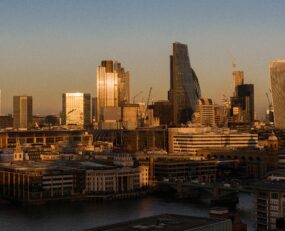
Recently, British Land has received planning consent for its Central London development, ‘The Box’, a 121,000 square feet microhub designed to address the demand for ultra-low carbon logistics in the city. It is situated on a former Crossrail worksite in Paddington. According to British Land, this development aims to serve the whole of Westminster and remove around 100 large vans from the borough’s roads every day, reducing emissions, and cutting delivery times and costs to operators.
As it is likely that similar developments will be proposed in future, we need to ask: are urban centre hubs considerably slashing emissions and meeting sustainability goals?
This new development aims to meet post-pandemic demand for faster delivery times. Fulfilling these expectations does not have to come at a detriment to London and the air quality, as the concept of micro hubs addresses a myriad of environmental and logistical challenges associated with urban freight delivery, such as congestion, emissions, and noise pollution, as their strategic locations within urban areas reduce the need for long haul transportation and cut down delivery times.
‘The Box’ facilitates entry for Heavy Goods Vehicles (HGVs) and plans to employ smaller EVs and electric cargo bikes for outbound deliveries, and swapping traditional vans with these could yield up to a 90% reduction in carbon emissions per parcel, contributing significantly to improved air quality and the overall environmental well-being of local communities.
The approval of the site swiftly followed the release of research conducted by the Centre for London and University College London, which British Land commissioned to address the rising need for last-mile deliveries in urban areas. The research findings affirm that sustainable cargo bikes could effectively serve over 5.7 million people in central London. Furthermore, the research showed that delivering by cargo bike is 1.6 times faster on average than delivering by van, and can enable a reduction in total distance travelled of up to 20%.
Urban microhubs are a step in the right direction for sustainable urban logistics. This project is setting the stage for future sustainable urban logistics development, and can be a model for city-focused supply chains to be more cost and carbon efficient. It is an opportunity to observe this supply chain model, take note of the challenges, and integrate new environmentally responsible ideas on how we build city centre last mile networks that not only fulfil modern consumer needs but are also eco-conscious.